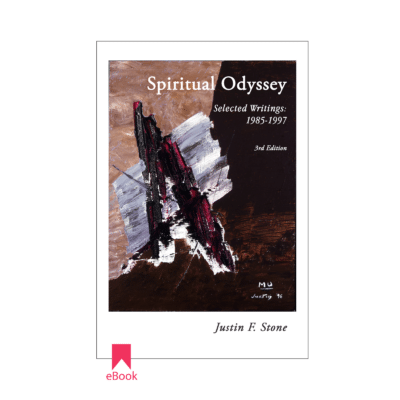
The relationship between teacher and pupil is a very noble one in the history of Spiritual Practice. Never, in the history of such relationships, had I ever heard of a chela (or monk, or student) telling, or writing, his Master that “I know more than you do; I have gone past you.” It would have been unthinkable. Occasionally a Zen Master, such as Huangbo, might say to his great disciple Linji (known as Rinzai in Japan), “One day your view will surpass mine and you will cut off the heads of all the sages in the world.” Notice that it was the teacher who made the statement. If a student had made it, it certainly would have alerted the teacher to how far the student still had to go. In many cases, arrogance like this would not have been tolerated.
Trust is the basis of such teacher-pupil relationships. It usually was the stern teacher who was later recalled with love by the enlightened pupil. If a Master is kind to a monk, a pupil or a chela, it means he or she is hopeless. The more outstanding the pupil, the harder the discipline. It is said that, in early days of India, penalties for a transgression were more severe for a high caste person than for a low-caste (or casteless) one. It was felt that the high-caste, educated one should know better. So a Master could probably be accused of picking on his best pupil, as he demanded the most from him. Abbot Oboro of the Soto Zen sect complained, while he was a monk, “Why doesn’t he let up on me for just a second?” Then, when his teacher died, he felt an “unutterable loneliness.” He knew that, now he was a respected Abbot, nobody would ever speak to him like that again.
A good teacher is one who repeats and repeats, and emphasizes sternly what the pupil seems to be ignoring. Ask a Japanese student who has studied flower arranging or tea ceremony! Kibishji sensei is a strict teacher, and much honored by the Japanese people.
Many years ago one of the certified teachers got a job teaching T’ai Chi Chih at a small college near his hometown. At the end of the first term, evaluation papers (for the opinions of students) were handed out. I feel these are destructive; the pupil cannot always understand the teacher, and this man was an excellent teacher. Having taught T’ai Chi Ch’uan, the movements came easily to him and he really knew how to move. His was not the shallow understanding at which some teachers stop.
On several of the evaluation papers, students had written that they did not like his blackboard technique. Big deal! A stern teacher, he had been working hard to teach them T’ai Chi Chih, not handwriting skills. Because of these evaluations the teacher was not rehired. This devastated him, and he and his wife drove sixty miles to see me.
“Do you think my husband is a good teacher?” she asked as soon as they arrived. “He’s an excellent teacher, “ I replied. “He really understands the yin-yang relationship.”
“Then, why did they fire him?” she demanded.
“Oh, if he had had a few beers with the students, cracked some jokes (not his personality), or done a tap dance, perhaps he would have been popular,” I replied. That teacher never taught T’ai Chi Chih again, and it’s our loss.
The breech of a teacher-pupil relationship is a serious karmic matter. As the teacher is usually quite a bit older (and, sometimes, infirm), respect and consideration is all important. Chinese Zen monks would rather die than hurt a teacher.
I think I’ve belabored my point. Shallow pupils usually withdraw from a strict teacher. Serious ones welcome the help he or she can give.

